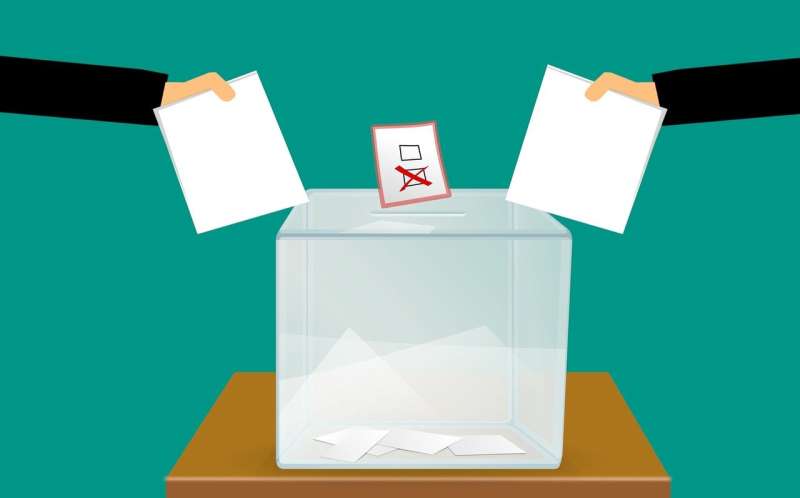Who does the electoral college favor?

Simulations from Columbia University researchers show a slight bias toward Trump but less of a tilt than in the 2016 election.
Trump's 2016 victory in the Electoral College without leading in the popular vote has led to wide speculation of a repeat in 2020. Columbia University researchers have been wondering the same thing.
Robert Erikson, professor of political science, and Karl Sigman, professor of industrial engineering and operations research at Columbia Engineering, have examined how Electoral College outcomes are conditioned by how states voted in previous elections. Their simulations suggest that in 2020 the Electoral College bias is likely to again favor the Republicans, but to a lesser degree than in 2016.
In a new study published today in PNAS, Erikson and Sigman, together with Ph.D. candidate Linan Yao, show how to forecast the electoral vote if the 2020 popular vote is close, taking into account the configuration of state voting in 2016. They examined the degree of Electoral College bias in past elections and the degree to which it can be predicted in advance from prior state voting patterns, going back to 1980.
Based on thousands of simulations, their research suggests that the bias in 2020 will likely favor Trump again, but to a lesser degree than in 2016. And, the team notes, there is sufficient range in the possible outcomes so that the bias could even favor Biden.
The team found that in past presidential elections, potential Electoral College bias was slimmer than in 2016. In these elections, the difference among states in their presidential voting is a function of the states' most recent presidential voting, plus new inputs, such as changes in population, not predicted by the state's past vote. While the distribution from the 2016 election matters, the evidence from past elections suggests that states can depart considerably from their previous vote and that there is thus some uncertainty for 2020 as well.
"We note that 2016 was a statistical outlier," said Erikson, who pointed out that Trump won in 2016 by barely winning Wisconsin, Michigan, and Pennsylvania. If the 2020 election is similarly close nationally, those outcomes could be different. Several other states (Arizona, Florida, Georgia, North Carolina) could also be in play in 2020, just based on how close they were in 2016. Added Erikson, "The Democratic versus Republican divisions in the prior election have mattered, but only up to a point. That is why the same national popular vote as 2016 could have a different Electoral College outcome."
The researchers looked at the percentage of Democrats and Republicans in a state as a function of the vote in the prior election, and measured the percentages relative to the state mean. Each state's vote as a relative position on the Democrat-Republican scale approximates that from the prior election plus a random "error" term. That error is critical as it represents new factors since 2016 that shape state voting, such as, for instance, votes by new migrants from other states. The Columbia simulations incorporate this error to reflect all the possible configurations of states, assuming a close vote nationally.
"We found that Biden probably does not need as big a popular vote margin as Hillary Clinton did," said Sigman. "If the vote were 51-49, as it was with Hillary Clinton, that would be the tipping point, and the Electoral College could go either way rather than a certain Trump victory. Our study shows that the 2020 election has less of a tilt to the Republicans than it did in 2016."
The study is titled "Electoral College Bias and the 2020 Presidential Election."
More information: Robert S. Erikson el al., "Electoral College bias and the 2020 presidential election," PNAS (2020). www.pnas.org/cgi/doi/10.1073/pnas.2013581117
Journal information: Proceedings of the National Academy of Sciences




















